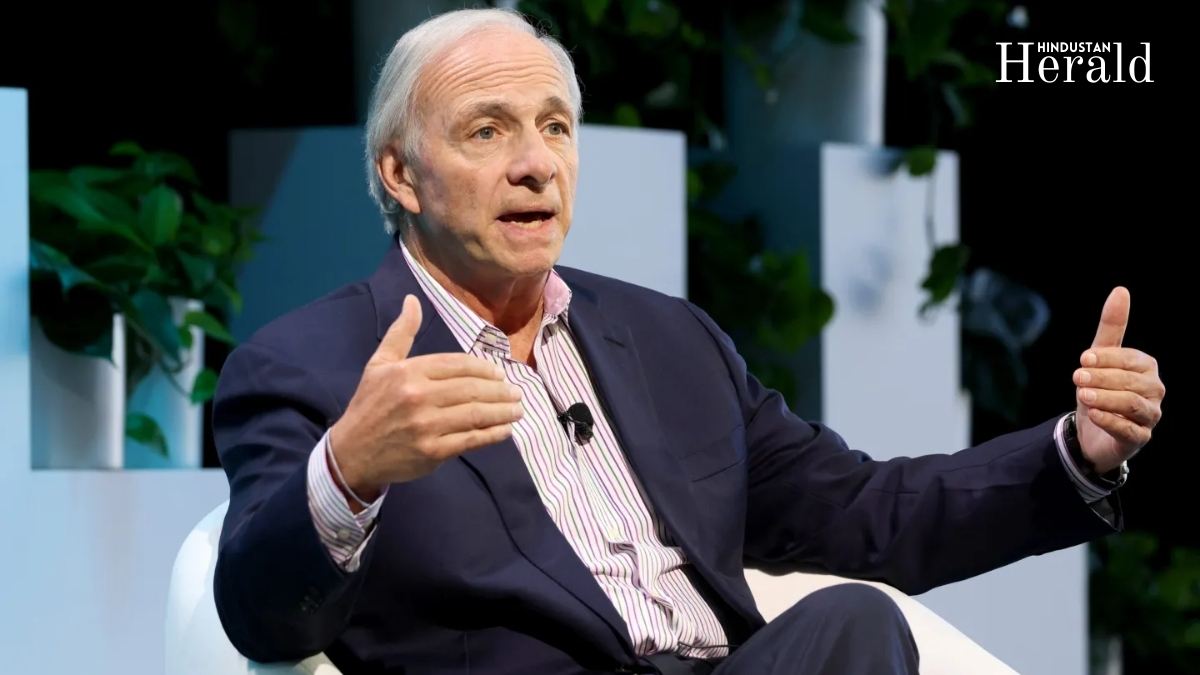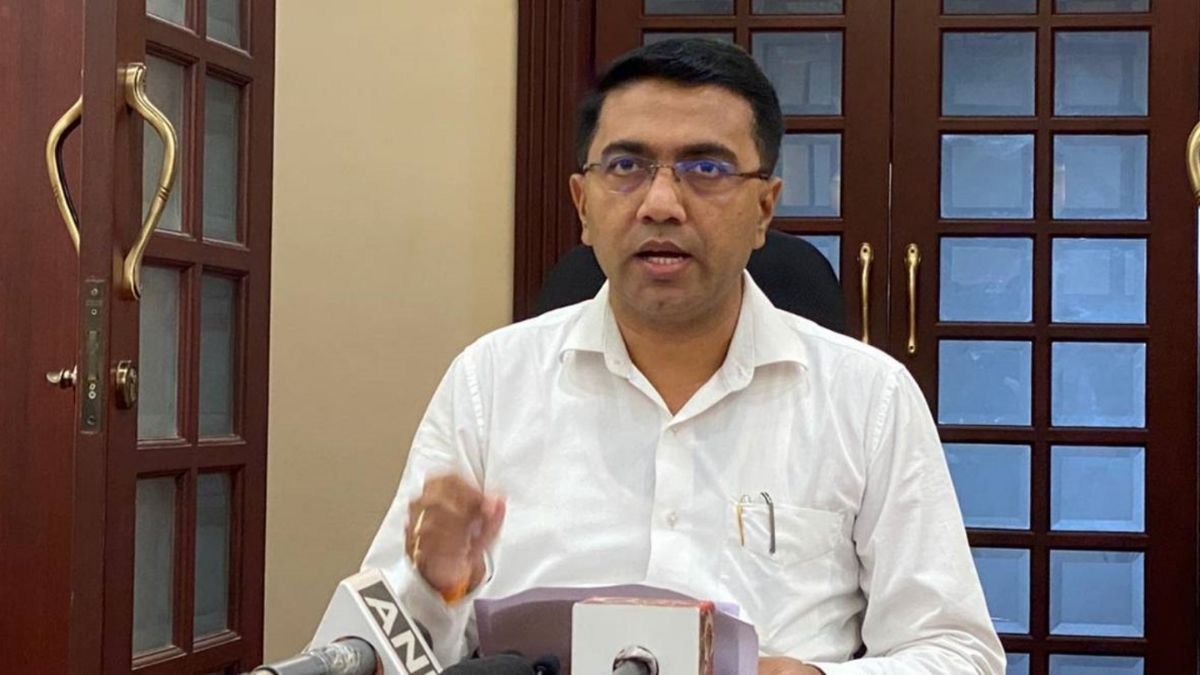Ray Dalio Says Trump Tariff Fallout Signals Global Breakdown, Not Just Market Panic

Table of Contents
New Delhi / New York, April 8, 2025 — As global markets reel from a historic sell-off triggered by U.S. President Donald Trump’s aggressive tariff escalation, billionaire investor Ray Dalio has issued a grim warning: the world is not merely facing a temporary bout of volatility, but is undergoing a “once-in-a-lifetime” breakdown of the global order.
Dalio, founder of Bridgewater Associates, the world’s largest hedge fund by discretionary assets, took to his public blog late Monday to offer a rare and somber assessment of current global tensions. His statement comes as Trump threatened to raise tariffs on Chinese goods by an additional 50%, a move that prompted a stern response from Beijing and further rattled investors worldwide.
Dalio’s Stark Warning: “Once-in-a-Lifetime” Global Disruption
In a sharply worded commentary, Dalio wrote:
“We are now witnessing something far more significant than a tariff tit-for-tat. This is a breakdown of the rules-based international order that has underpinned global growth since World War II.”
“Most people are focused on the immediate market chaos caused by President Trump’s actions, but they are missing the underlying cracks — the same forces that got him elected and are now manifesting through these policies.”
Dalio argued that what we are seeing is not just market instability but a systemic reconfiguration of geopolitics, economics, and power balance.
Markets Crash Under Tariff Pressure
Dalio’s statement followed a brutal trading day on Wall Street and beyond:
- Dow Jones Industrial Average: Fell 1,300+ points
- NASDAQ Composite: Dropped 3.2%
- S&P 500: Lost 2.7%
- Global Markets: Germany’s DAX down 2.6%, Japan’s Nikkei down 3.1%
Commodities and oil prices also took a hit amid fears of a prolonged U.S.–China trade war. The VIX, known as Wall Street’s “fear gauge,” spiked 22%, reflecting heightened uncertainty.
Trump’s 50% Tariff Threat Escalates Crisis
Late Monday, President Trump stunned the global community with another hardline move, declaring that tariffs on Chinese imports would rise by an additional 50% if China did not reverse its own 34% retaliatory hike. In a Truth Social post, Trump stated:
“Any country that retaliates against the U.S. with more tariffs will be met with new and substantially higher tariffs.”
This marked the latest in a series of escalating trade threats from the Trump administration, coming just days after Trump denied reports of a 90-day tariff pause.
China Responds: “We Will Take Countermeasures”
In a swift and direct reply, China’s Ministry of Commerce issued a statement vowing to “resolutely take countermeasures” to defend the country’s economic interests.
“The United States continues to violate the principles of fair trade. China will not remain passive and will take all necessary steps to safeguard its rights.”
This tit-for-tat posture has renewed fears of a full-scale trade war that could disrupt global supply chains, spike inflation, and weaken consumer confidence across markets.
Dalio’s Analysis: Deeper Societal Forces at Play
Ray Dalio warned that focusing solely on tariff announcements misses the broader context. According to him, the rise of populism, nationalism, and de-globalization are at the core of this unfolding crisis.
He explained:
“The reason these tariffs are politically acceptable — even popular in some circles — is because of the deeper dissatisfaction in many societies. Income inequality, loss of identity, distrust in institutions — these are not caused by tariffs. They are what drive them.”
Dalio urged global leaders to recognize the economic and political symptoms of structural decay, rather than treating them as isolated policy disputes.
Bridgewater’s Global View: Long-Term Instability Likely
Bridgewater Associates has been one of the most closely watched macroeconomic hedge funds on Wall Street. Analysts note that the firm has been increasingly cautious over the past six months, warning clients of “heightened geopolitical fragmentation” and a possible realignment of world powers.
Dalio’s note emphasized:
- Rising debt levels
- Political extremism
- De-globalization
- Diminishing U.S. dominance in global institutions
These, he believes, are setting the stage for multi-decade transformations, and the tariff war is merely a flashpoint.
Expert Reactions: Dalio’s Comments Reverberate Globally
Nouriel Roubini, Professor of Economics at NYU, said:
“Dalio is absolutely right. This is not just economic warfare — it’s systemic rebalancing. The old world order is fading.”
Anjali Sharma, Chief Global Strategist at SBI Global Markets (India), added:
“From New Delhi to New York, we’re all watching this like a ticking time bomb. Dalio’s words echo what many governments fear but won’t say publicly.”
Indian Market and Policy Implications
India, though not directly involved in the U.S.-China tariff war, is observing the developments with concern. The Sensex and Nifty both dipped 1.2% on Tuesday morning in reaction to global uncertainty.
The Ministry of Commerce and Industry has reportedly held internal meetings to assess the potential impact of continued U.S.-China tensions on Indian exports, manufacturing, and foreign investment inflows.
A senior official told Hindustan Herald:
“We are recalibrating our trade and diplomatic strategies. Any sustained U.S.-China breakdown opens both risks and opportunities for India.”
Dalio’s Final Note: Time to Prepare, Not Panic
Despite the dire tone, Dalio concluded his blog with a note of measured caution, urging investors, policymakers, and the public to prepare rationally rather than panic emotionally.
“In times of profound transition, those who remain grounded, diversified, and realistic are the ones who will come through stronger. This is not the end of the world, but it may be the end of the world as we knew it.”
Tariffs as a Trigger, Not a Cause
Ray Dalio’s warning reframes the current crisis from a policy debate to a civilizational shift. With Trump’s tariff actions serving as a visible symptom of deeper fractures in the global system, analysts and governments around the world are now asking: what comes next?
Whether China retaliates further or the White House doubles down, one thing is clear — we are in uncharted waters, and the rules of engagement may never be the same again.
The Hindustan Herald Is Your Source For The Latest In Business, Entertainment, Lifestyle, Breaking News, And Other News. Please Follow Us On Facebook, Instagram, Twitter, And LinkedIn To Receive Instantaneous Updates. Also Don’t Forget To Subscribe Our Telegram Channel @hindustanherald









